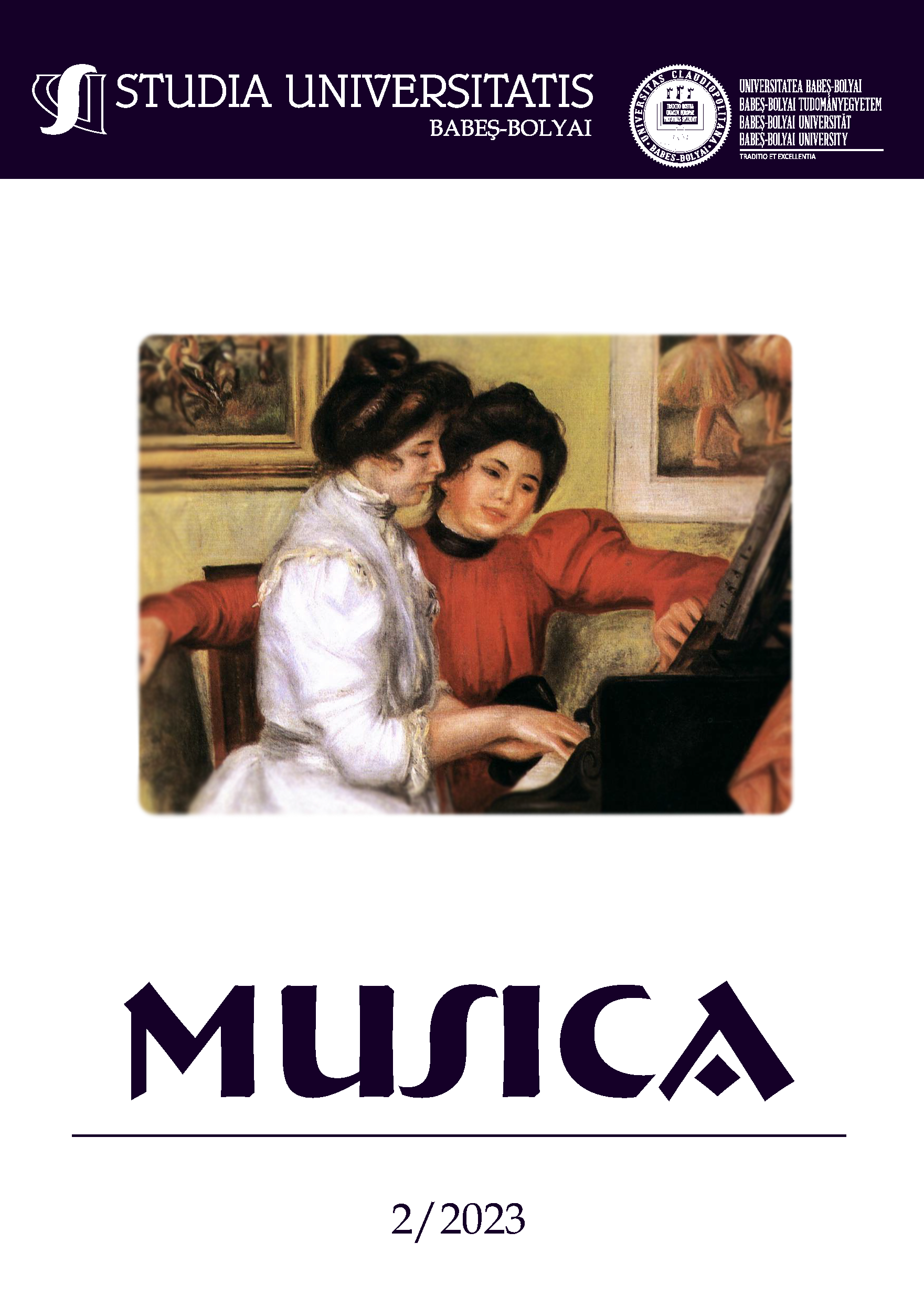The Cognitive Mechanism of Music
DOI:
https://doi.org/10.24193/subbmusica.2023.2.11Keywords:
Music, Mathematics, Intervals, Cognition, Computation, PhenomenologyAbstract
Music clearly has a mathematical structure. From the ancient Pythagoreans we know that harmony is the mathematical ratio between the notes (the frequencies as has been discovered by physics). This operation can be performed by the brain which has been seen as a kind of computer by the philosophy of mind of the last decades. And it is an unconscious operation. The conscious presentation of music contains the intervals as phenomenal components, yet not in a mathematical form, obviously, but in a sensorial form, alongside the notes themselves. The experience of music must contain the intervals as cognitions (in the sense that they have phenomenal form), otherwise no music would be possible at all. The phenomenological structure of harmony shows us the notes themselves in the foreground but the intervals in the background that we can still hear and experience it fused with the notes. The experience of the intervals are also not the emotions that music evokes in us - though they are definitely connected in some ways by the neural circuits of the brain and compose further phenomenological structures.References
Books:
Bernstein, Leonard. The Joy of Music. Ed. Simon & Schuster, New York, 1959.
Carruthers, Peter. The Architecture of the Mind. Massive Modularity and the Flexibility of the Mind. Clarendon Press, Oxford, 2006.
Celibidache, Sergiu. Despre fenomenologia muzicală (About the Phenomenology of Music). Ed. Spandugino, București, 2012.
Chalmers, David. The Conscious Mind. In Search of a Fundamental Theory. Oxford University Press, New York, 1996.
Crane, Tim. Elements of Mind. An Introduction to the Philosophy of Mind. Oxford University Press, New York, 2001.
Davies, Stephen. Themes in the Philosophy of Music. Oxford University Press, New York, 2003.
Fodor, Jerry. The Modularity of Mind. The MIT Press, Cambridge, 1983.
Jackendoff, Ray. Consciousness and the computational mind. The MIT Press,1994.
Lerdahl, Fred. Jackendoff, Ray. A Generative Theory of Tonal Music, MIT Press, Cambridge, 1996.
Stich, Stephen. From Folk Psychology to Cognitive Science. Cambridge, Mass: The MIT Press, 1983.
Articles:
Anagnostopoulou, Christina. Buteau, Chantal. ‘‘Can computational music analysis be both musical and computational?”, Journal of Music and Mathematics, Vol. 4, 2010, pp.73-83.
Levitin, Daniel, J., Tirovolas, Anna, K. ‘‘Current Advances in the Cognitive Neuroscience of Music’’. In The Year in Cognitive Neuroscience, New York, 2009, pp. 211-231.
Matheson, Carl. Caplan, Ben. ‘‘Ontology’’. In The Routledge Companion to Philosophy and Music, New York, 2011, pp. 38-47.
Pitt, David. ‘‘The Phenomenology of Cognition or What Is It like to Think That P?’’. In Philosophy and Phenomenological Research, Vol. LXIX, No. 1, July 2004, pp.1-36.
Downloads
Published
How to Cite
Issue
Section
License
Copyright (c) 2023 Studia Universitatis Babeș-Bolyai Musica

This work is licensed under a Creative Commons Attribution-NonCommercial-NoDerivatives 4.0 International License.






